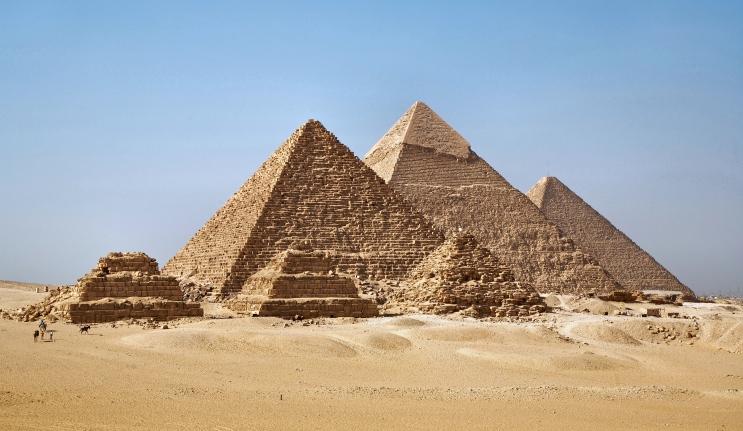
RESEARCH NEWS
Power and the past
“Events from the distant past can still offer an insight into the modern world,” enthuses Dr Karin Sowada, an expert in the interaction between Egypt and the eastern Mediterranean during the Early Bronze Age (3100–2000 BC).
Citing the economic development of five land and sea routes out of China, the Belt and Road Initiative (BRI), the Department of Ancient History’s Sowada says, “China is pursuing its own interests through trade, political influence, and infrastructure investment.”
The huge impact on neighbours and trade relationships of a project like this is something that has often played out over time, but until now, the precise impact of power plays, trade and social instability on societies like ancient Egypt and their neighbours has been difficult to know. But that’s all about to change.
Sowada, recently recognised with an Australian Research Council Future Fellowship, is leading the project ‘Pyramids, power and the dynamics of states in crisis’, which she says will allow her team to track the progress of a state as influential as modern-day China – in the ancient world.
Inspired by the work of the late Professor Basil Hennessy AO, who was a leading scholar in the archaeology of the Levant (eastern Mediterranean) and whose work set the found evidence within a broader international context, Sowada will be exploring how Egypt, during the third millennium BC, was a major player and driver of economic, political and social change in the wider region.
“We know, for example, that the kings of Egypt had a voracious appetite for imported luxury goods and that economic exchange mechanisms are a catalyst for cultural and social change. But what we don’t know is how the internal politics play out, or how leadership responds to threats and challenges, or how this drives decision-making and economic policy settings.”
One of these challenges, says Sowada, was climate variation. “The Nile River was the lifeblood of the Egyptian economy, and low floods had a huge impact both economically and politically.
“Knowing how Egypt dealt with such stress during this period will help inform the role of politics, climate change, trade and the movement of people across a wide geographic area over a long chronological range.
“It will also help us understand the broader environment in which the Egyptian state operated and what impact its engagement had on the rest of the Levant.”
It would seem the wisdom of the pyramids has yet more secrets to unleash.
With a doctorate in Egyptian archaeology, Dr Karin Sowada has worked in politics, public policy and archaeology while holding leadership positions in charitable organisations. In the early 1990s, she broke new ground as the youngest-ever female senator in New South Wales, before spending almost a decade as the assistant curator of the Nicholson Museum.